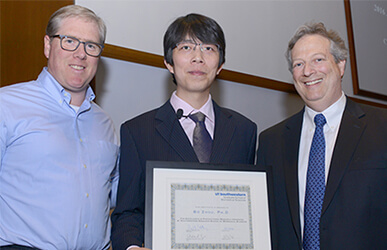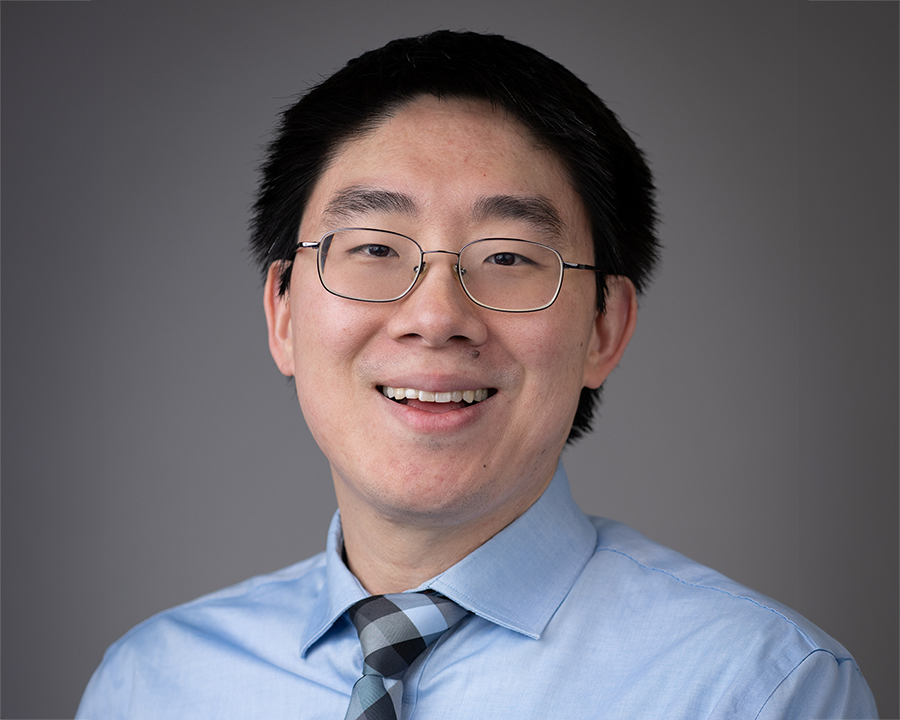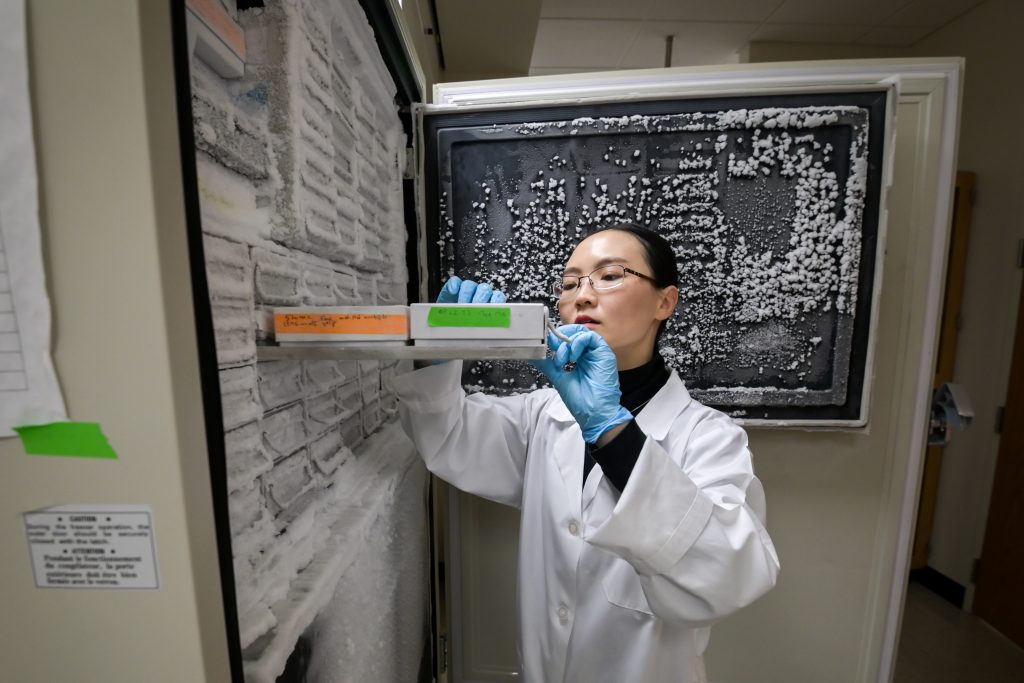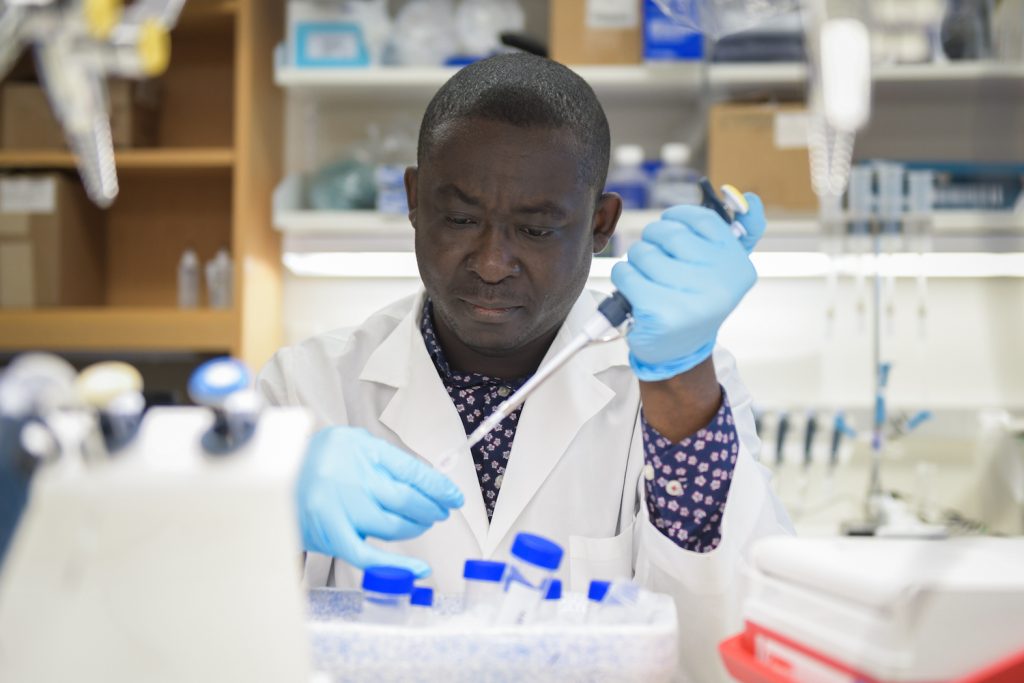
Dr. Bo Zhou, a postdoctoral researcher in the Children’s Medical Center Research Institute (CRI) lab of Dr. Sean Morrison, has been named the winner of the 2016 Award for Excellence in Postdoctoral Research at UT Southwestern Medical Center.
The recognition is the highest annual award given to a UT Southwestern postdoctoral scholar participating in the graduate school’s Postdoctoral Certificate Training Program. This award recognizes excellent traits of the postdoc such as creativity, productivity, and presentation skills as well as attributes of the postdoc’s research project including originality, depth, and impact.
Dr. Zhou, a graduate of the Chinese Academy of Sciences, Shanghai Institutes for Biological Sciences and one of nearly 600 postdocs on the UT Southwestern campus, won the award in a stringent competition.
“The competition was quite intense, as I had imagined it would be,” said Dr. Zhou, who studies blood-forming stem cells, the most clinically used form of stem cell.
He presented his research at the University Lecture Series on March 2 in the Excellence in Education Foundation Auditorium on the North Campus.
“There are thousands of patients whose lives are saved every year as a result of hematopoietic stem cell (HSC) transplants; however, there are thousands more patients who could be treated more effectively if we could just grow these blood-forming stem cells in culture,” he said. “Despite decades of efforts we are still very limited in our ability to grow and expand these cells in vitro. It is likely that the microenvironment supporting these cells in vivo, called stem cell niche, is not adequately replicated in culture.
“My research aims to unravel the exact cellular composition of the HSC niches in vivo. If I can recreate the niche for HSCs in vitro, it may change how thousands of patients are clinically treated.”
Dr. Zhou, who will return to the his alma mater this summer to take up a faculty position, joined Dr. Morrison four years ago as the Children’s Medical Center Research Institute was coming into being.
“I spent two days in Michigan with him,” Dr. Zhou said, with a smile. “Then I came to Dallas.”
“Bo and another of my postdocs, Dr. Rui Yue, came out of the Chinese Academy of Sciences at the same time,” Dr. Morrison recalled. “They applied to me at the same time. The Chinese Academy of Sciences has a huge number of graduate students, yet Bo and Rui were described to me as the two best scientists to ever train there.
“Losing someone as good as Bo always hurts, but you have to keep in mind that they come here with the goal of launching their own independent laboratory. It makes you feel good when they achieve that goal.”
Dr. Zhou will return to Shanghai with his wife, Dr. Shan Shan Wang, and their 3-year-old son, Evan. The couple met in school at the Chinese Academy of Science. Dr Wang is a postdoctoral researcher in the lab of Dr. Massimo Attanasio, Assistant Professor of Internal Medicine, and in the Eugene McDermott Center for Human Growth and Development.
Finalists for the postdoc award were Dr. Jiangtao Guo, from the lab of Dr. Youxing Jiang, Professor of Physiology, and Biophysics; Dr. Elena Piskounova, also a member of Dr. Morrison’s lab; and Dr. Curtis Thorne, mentored by Drs. Melanie Cobb, Professor of Pharmacology; Steven Altschuler, Professor of Pharmacy at the University of California, San Francisco; and Lani Wu, also Professor of Pharmacy at UCSF.
Requirements to enter the postdoc competition include having produced a first-authored publication from work done at UT Southwestern, as well as letters of recommendation from a mentor, and a collaborator or external referee. Fourteen postdocs representing a dozen labs and nine departments were identified before a pre-award committee made up of faculty members cut the entries in half, then arrived at four finalists, who were interviewed by an awards committee led by Dr. Joel Goodman, Professor of Pharmacology.



